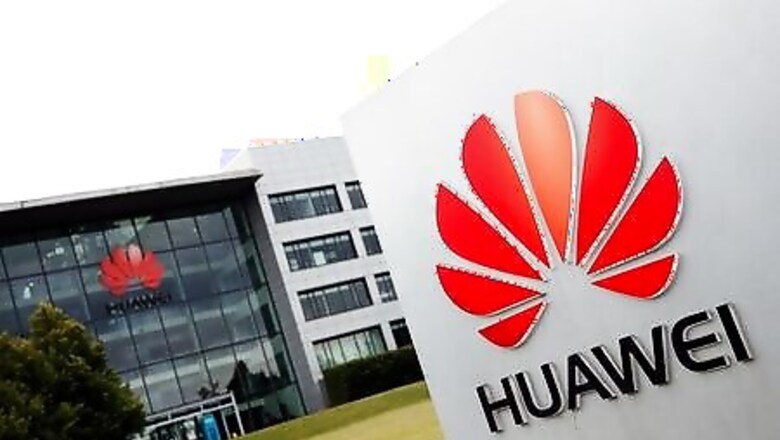
views
LISBON The three companies who dominate Portugal’s mobile phone market said they would not use Huawei [HWT.UL] technology in their core 5G networks despite the government not banning the Chinese group from supplying critical infrastructure.
NOS , Vodafone and Altice – which together serve nearly 100% of Portugal’s mobile customers – all said they had decided not to use Huawei kit in the core systems of their 5G networks, which covers servers, gateways and routers that forward traffic to the antennas.
The question of whether or not to use Huawei for next-generation mobile networks has become a major issue in Europe amid intense diplomatic pressure from the United States to ban the Chinese group.
The Portuguese government has so far not taken a stance, but Infrastructure Minister Pedro Nuno Santos told Reuters it has “no ‘a priori’ issues with any manufacturer.”
Nuno Santos revealed that a group created by the Portuguese government to assess risks and cybersecurity issues relating to 5G had completed its work and had not drawn any conclusions directed against any particular supplier.
Huawei did not immediately reply to a request for comment.
Core mobile networks carry higher surveillance risks because they incorporate more sophisticated software that processes sensitive information such as customers’ personal data.
A NOS spokeswoman said the company “will not have Huawei equipment in its core network” and will choose the “best partners” for each of the network’s components.
At Vodafone Portugal a spokeswoman said of the parent group: “Vodafone announced that its core 5G network won’t include Huawei in its different operations, so naturally, Vodafone Portugal is no exception.”
HISTORIC PARTNER
Vodafone Portugal “has been working on preparing its 5G network with its preferred and historic partner Ericsson ,” the spokeswoman said.
Altice Portugal CEO Alexandre Fonseca set out a similar stance as early as March, saying the company hadn’t even included Huawei in its current core mobile telecoms networks.
Altice Portugal said its position remained the same.
Neither company gave a reason for not using Huawei in their core networks. Their stances potentially leave the door open for them to use Huawei in non-core parts of the 5G rollout.
The three telecom groups’ decisions regarding Huawei allows the Portuguese government – for whom China is a key business partner and the United States is also a major ally – not to take a stance.
Nuno Santos confirmed he had “heard Huawei would be left out” of core 5G networks but added: “It has nothing to do with the options or impositions of the Portuguese government, which in this matter is absolutely aligned with the European orientation.”
The European Commission has urged European Union member states to take urgent action to diversify their 5G suppliers, a move set to shrink Huawei’s presence in Europe.
The EU strategy includes reducing dependence on countries and telecoms operators from a single supplier. Huawei competes with Finland’s Nokia as well as Sweden’s Ericsson.
Portugal postponed its 5G spectrum auction for six months to October due to the coronavirus pandemic.
The government in neighbouring Spain has not taken a position, though Telefonica said it would gradually remove Huawei from the core network for technical reasons. Huawei was among a list of operators included in 5G pilot projects unveiled on Thursday, but not the only one or the main one.
Disclaimer: This post has been auto-published from an agency feed without any modifications to the text and has not been reviewed by an editor



















Comments
0 comment